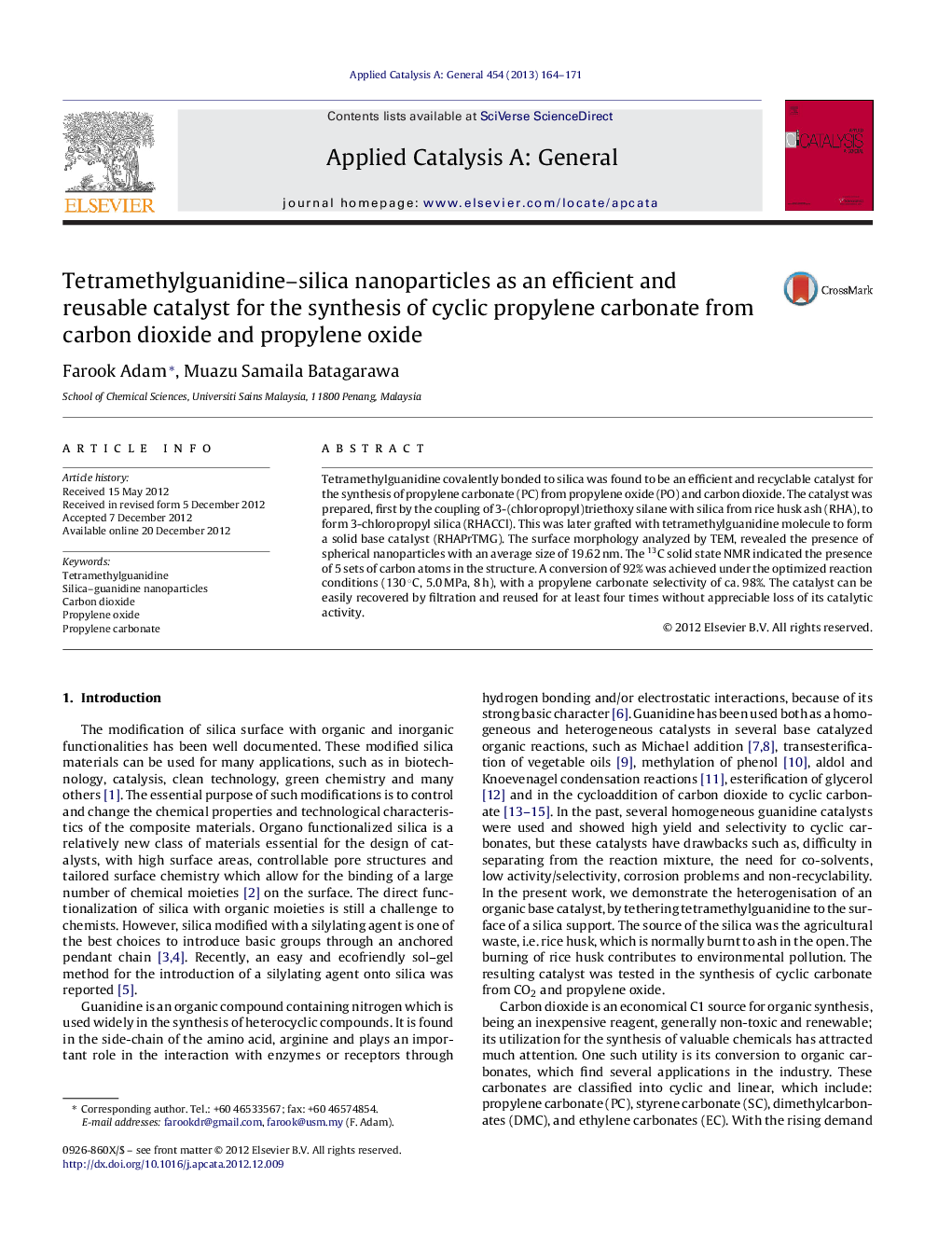| Article ID | Journal | Published Year | Pages | File Type |
|---|---|---|---|---|
| 40482 | Applied Catalysis A: General | 2013 | 8 Pages |
Tetramethylguanidine covalently bonded to silica was found to be an efficient and recyclable catalyst for the synthesis of propylene carbonate (PC) from propylene oxide (PO) and carbon dioxide. The catalyst was prepared, first by the coupling of 3-(chloropropyl)triethoxy silane with silica from rice husk ash (RHA), to form 3-chloropropyl silica (RHACCl). This was later grafted with tetramethylguanidine molecule to form a solid base catalyst (RHAPrTMG). The surface morphology analyzed by TEM, revealed the presence of spherical nanoparticles with an average size of 19.62 nm. The 13C solid state NMR indicated the presence of 5 sets of carbon atoms in the structure. A conversion of 92% was achieved under the optimized reaction conditions (130 °C, 5.0 MPa, 8 h), with a propylene carbonate selectivity of ca. 98%. The catalyst can be easily recovered by filtration and reused for at least four times without appreciable loss of its catalytic activity.
Graphical abstractFigure optionsDownload full-size imageDownload high-quality image (131 K)Download as PowerPoint slideHighlights► Silica from rice husk ash was functionalized with tetramethylguanidine. ► The catalyst consisted of nanoparticles. ► The catalyst aided the cycloaddition of CO2 to propylene oxide. ► 98% selectivity toward propylene carbonate was achieved with the catalyst. ► Catalyst was recycled several times and found to be stable and efficient.
